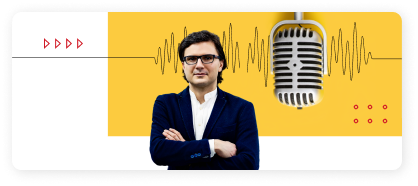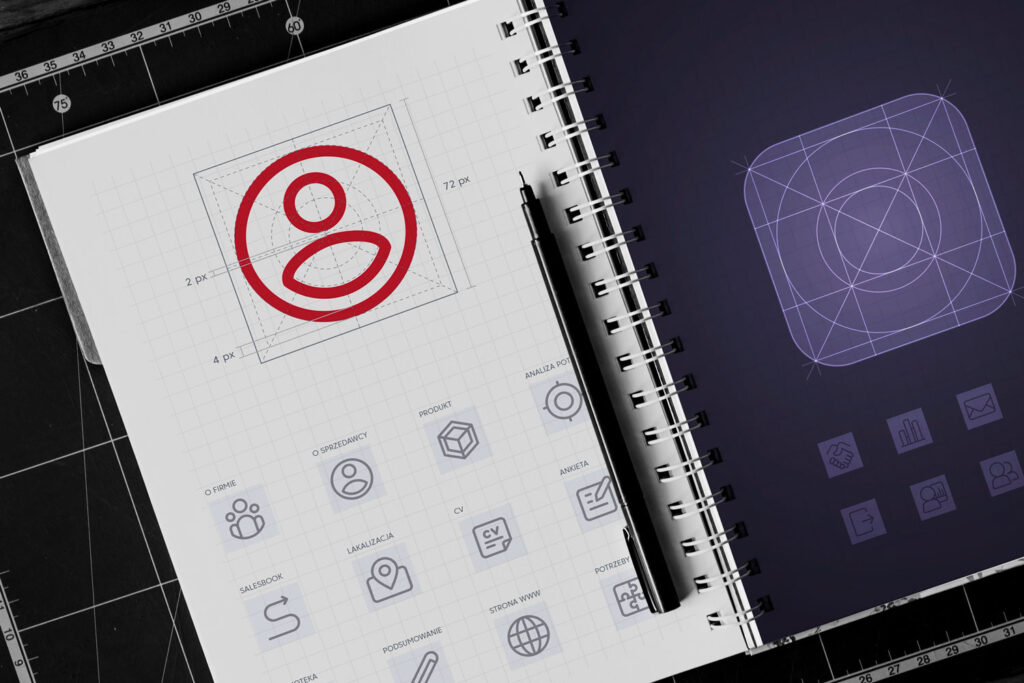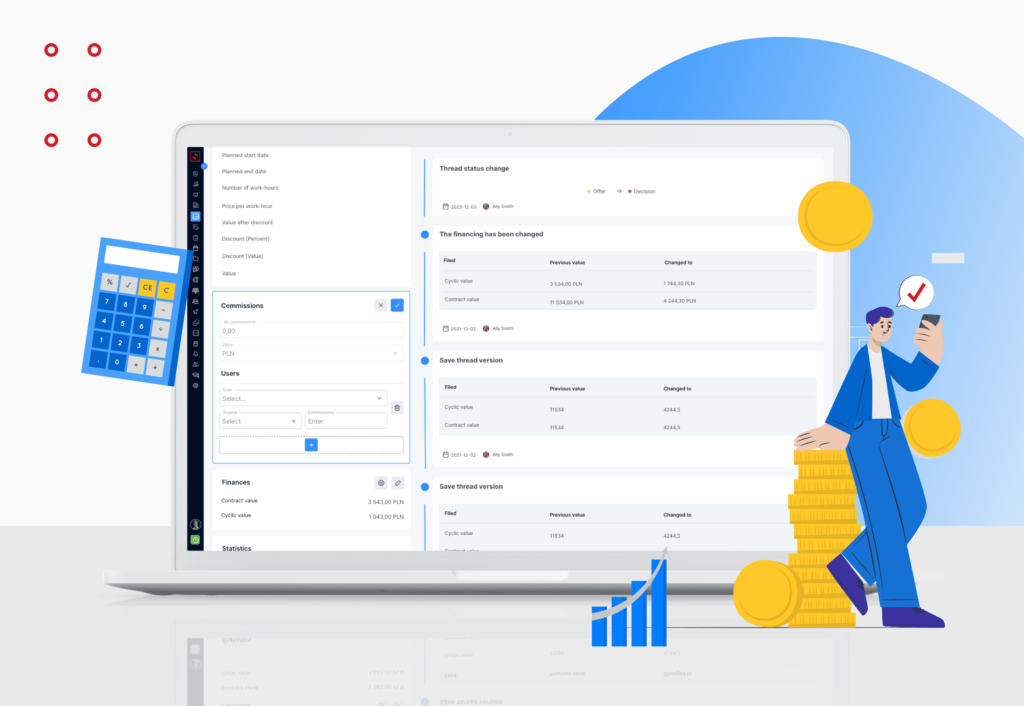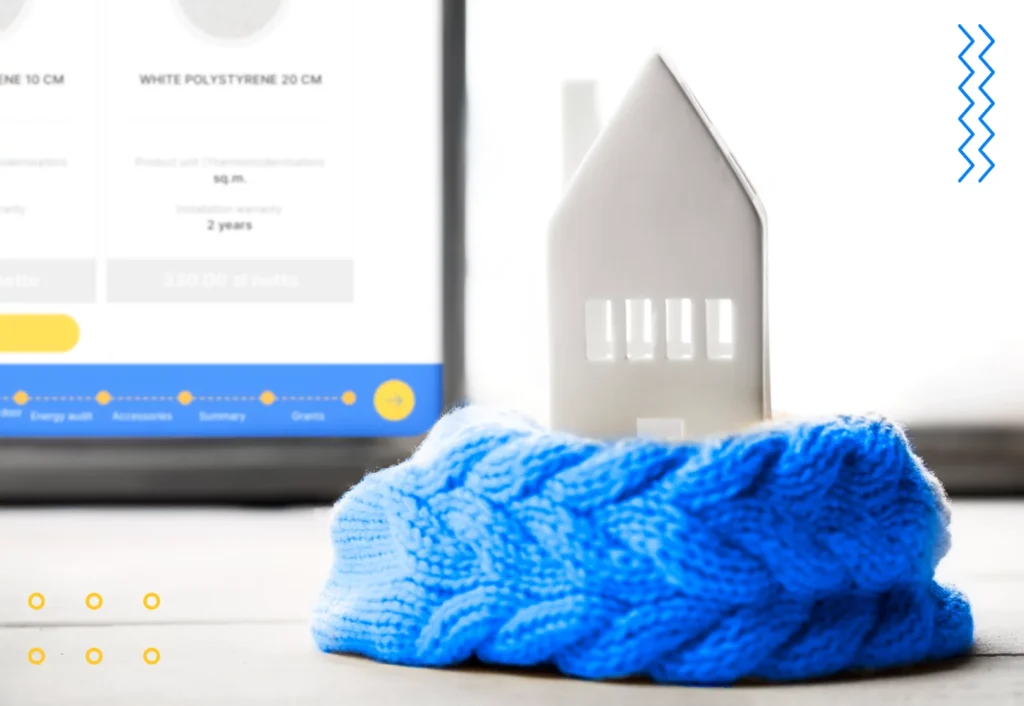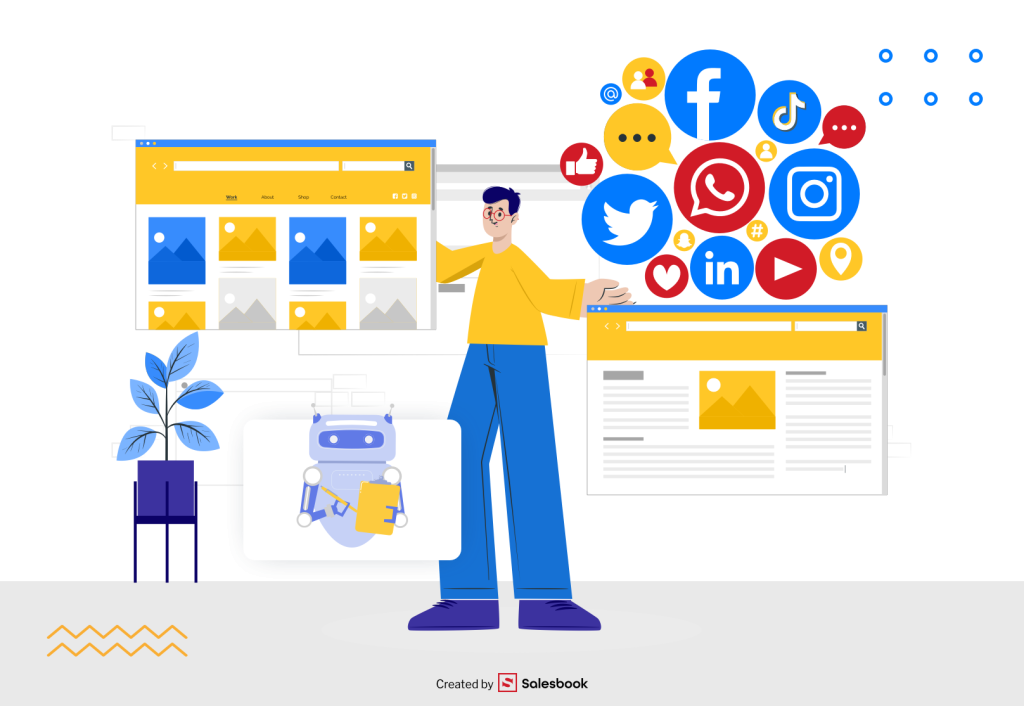Six elements that must be included in effective sales presentation
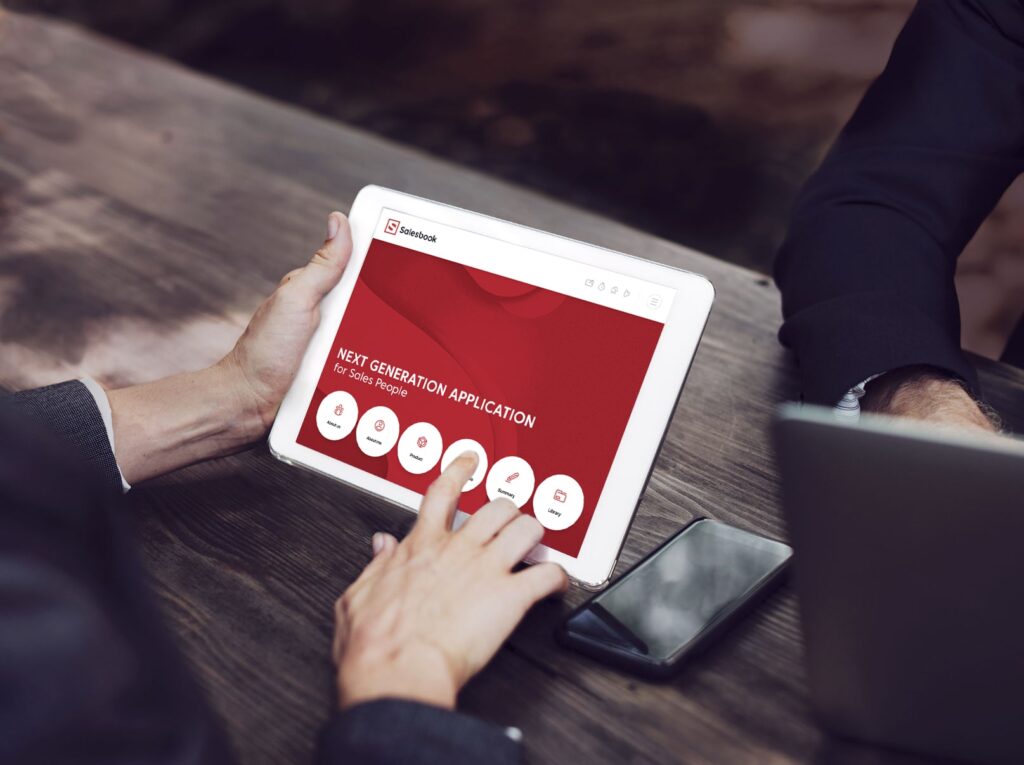
Every salesman wants to have a set of tools at hand that allow him to quickly close the sales process. Something that will remove the customer’s objections to the needs or price, arouse desire and will allow us to finalize the process. A well-designed package of materials such as a presentation, form or calculator can be a helpful tool, which the seller can show the customer at any time, e.g. on a tablet.
In the article devoted to visual thinking we showed how to prepare an aesthetic presentation. In this material we will present how to construct an effective message. It is known fact that graphics won’t help if we do not have interesting content to convey.
1. Quickly explain the category of your product
One of the most important tasks of the human brain is to categorize. People must have the product or service in the appropriate “drawers”. This gives them peace of mind, a sense of security and most importantly, an impression order and understanding the world.
Salesman cannot destroy this situation, but he also must do everything to create and maintain it. That is why it is so important that the first time a customer interacts with our product, he should be able to categorize it accordingly.
How to understand a product category? This is a definition that makes the customer understand what the product does and what problem it solves. This is best explained by simple examples.
- Butter is a food product that we can use in the kitchen to provide nutritional value in the form of fatty acids, minerals and vitamins.
- Sneakers – shoes that are made of canvas and rubber soles used by the owner mainly on warm and dry days.
- Tablet – portable computer, equipped with a touch screen with a flat design and without a physical keyboard.
Product category defines what our product or service is and what we can do with it. It refers to a simpler idea, understood by the customer, which does not need to be explained further.
The use of a product category is particularly important for innovative products that escape easy definition. Below is an example of using a product category in marketing communication.

We recommend that you do not continue your sales presentation without making sure that our interlocutor understands the product category they are dealing with.
2. Define the problem and show the solution
You can say that the customer does not need your product until he realizes he needs it. The customer may not know about the existence of stain remover until he spills red wine on his white sweater. In such a situation they will start looking for a solution and suitable products themselves.
Take, for example, aeration and scarifying equipment for lawns. At first glance, they may seem completely unnecessary to the average fan of garden in front of home, who can cope with the removal of dry grass using classic rakes. However, if this hobby gardener were to realize that his rakes only remove a small part of the dead part of the lawn and are unable to aerate the ground, he could be more easily persuaded to invest in a suitable device.
We often don’t think about a product because we haven’t yet come across the problem that this product solves, or because we know of another solution to this problem.
This is exactly how your sales presentation must work. You need to define the problem, describe it and make it more flexible. The customer needs to see himself in a better, more efficient and closer to his emotion’s context. He should understand that:
- he has a problem at all,
- the ways he knows how to solve it are ineffective,
- that there are appropriate ways to solve the problem, which will be presented to him in a moment.
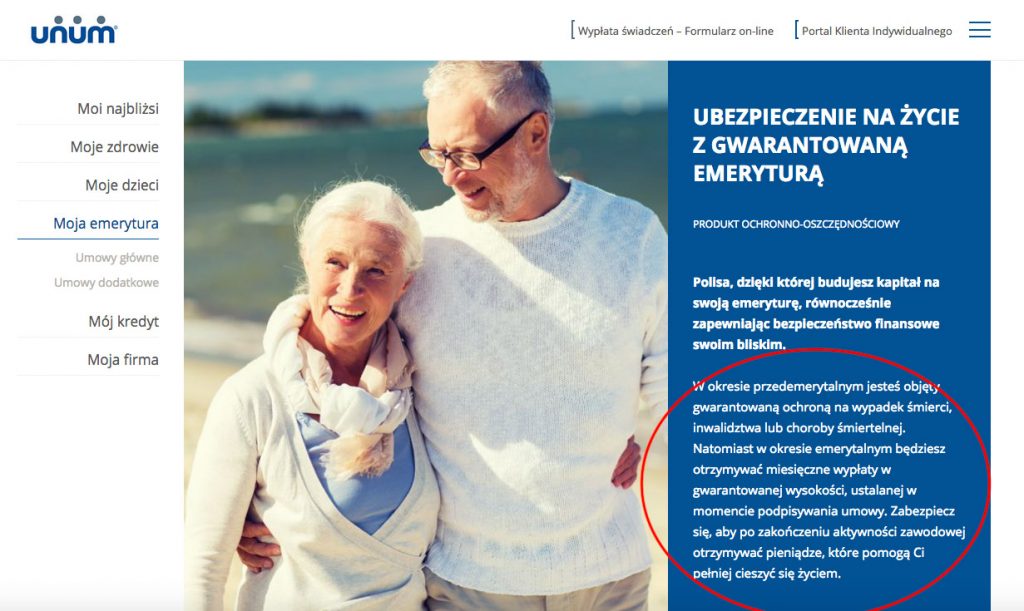
3. Show how you stand out from the competition
A common question we hear from potential customers is a phrase: “how your product is actually different from X or Y”. This question usually arises when the customer already understands the product category and is even able to recall the names of brands that have built a strong awareness within this category.
A common question we hear from potential customers is a phrase: “how your product is actually different from X or Y”. This question usually arises when the customer already understands the product category and is even able to recall the names of brands that have built a strong awareness within this category.
How to seek such advantages? They may occur in many fields of our activity:
- advantages in the essence of the product itself (its features and parameters),
- advantage in the way the product is delivered,
- advantage in the way of sales-oriented service,
- advantage in price,
- advantage in our company’s impact on the environment, economy or social dimension.
Below you will find examples of different forms and approaches to what differentiating can be, and thus our competitive advantage.


4. Provide social proof
We’re all a bit cynical and therefore we don’t believe everything people say to us. This is especially true of the sales process, which is often even described as “marketing gibberish”.
Most of our potential customers will have this attitude, but there is a method to change it. People learn by observation. They watch what other members of their group do and then try to do the same.
We can apply this simple fact to the sales process, showing a potential customer that someone has already taken the risk of trying out our offer and not only hasn’t lost out on it, but has achieved certain business benefits.
We can do this in several ways:
- The simplest thing is to present your customers’ logotypes – it works effectively if our customers have recognizable and impeccable brands,
- Another form is to enrich the logotype with a short quote from the customer, such a quote should be illustrated with a photo of the person speaking and a signature (the whole creates the so-called testimonial) – in this way we introduce a human element to our story,
- The most sophisticated form is the so-called case study, which contains all the above elements, as well as a description of how the customer specifically uses our product and how it has changed his business processes.

5. Present the price of the product clearly and honestly
There is nothing worse than bringing a customer to the point of presenting a pricing policy and getting stuck on its complicated dimension. Why? Because even if we don’t have dishonest intentions, if the client doesn’t understand how the price is constructed, he will think that we are trying to hide something. This impression cannot be changed too easily, which can even lead to the interruption of the sales process.
The price must be clearly defined, so as the range it covers. The customer must know precisely what he is paying for and what he is not paying for. We can even go one step further and explain to the customer how exactly we have constructed our price. For this purpose, we can reach into one of the following areas:
- the advanced technology we have invested in,
- prices of components which are publicly known, and which are needed to manufacture our product,
- or based on the number of people who work on the project and their competences.
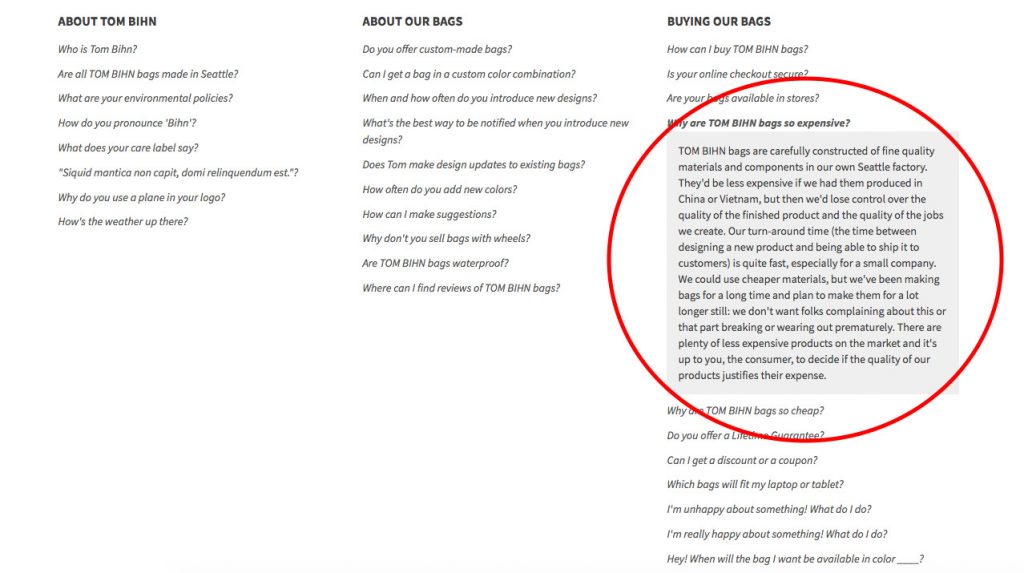
When presenting prices, try to give values that will relate to the TCO, i.e. the total cost that the user will pay for using our product/service. This will eliminate the chance of a future (perhaps even very close) awkward situation in which the customer will accuse you of not having mentioned something. Such situations very quickly result in a loss of confidence in the merchant and it will be very difficult for you to get out of them.
Also apply the three-price rule and suggest the one that is optimal in your opinion, or the one that is most often chosen by users of a given type. Your potential customer will want to make the choice himself but will consider the recommendation he receives from other users.

6. Encourage the customer to take a specific action
As is well known, a sales presentation cannot end without specifying further steps in the sales process. The purpose of this part of the presentation must be to determine what further action you will take in this process and preferably what action will be taken by the potential customer.
We can have several such CTAs (Call to Action):
- making an appointment for another e-mail or telephone contact,
- encourage client to visit a website or a page with some valuable content that will widen customer’s understanding of the offer,
- encourage client to register an account and test the service.
The most important thing is that you include such an element in your presentation and make sure that it is properly sounded during the meeting and then make sure it is implemented.
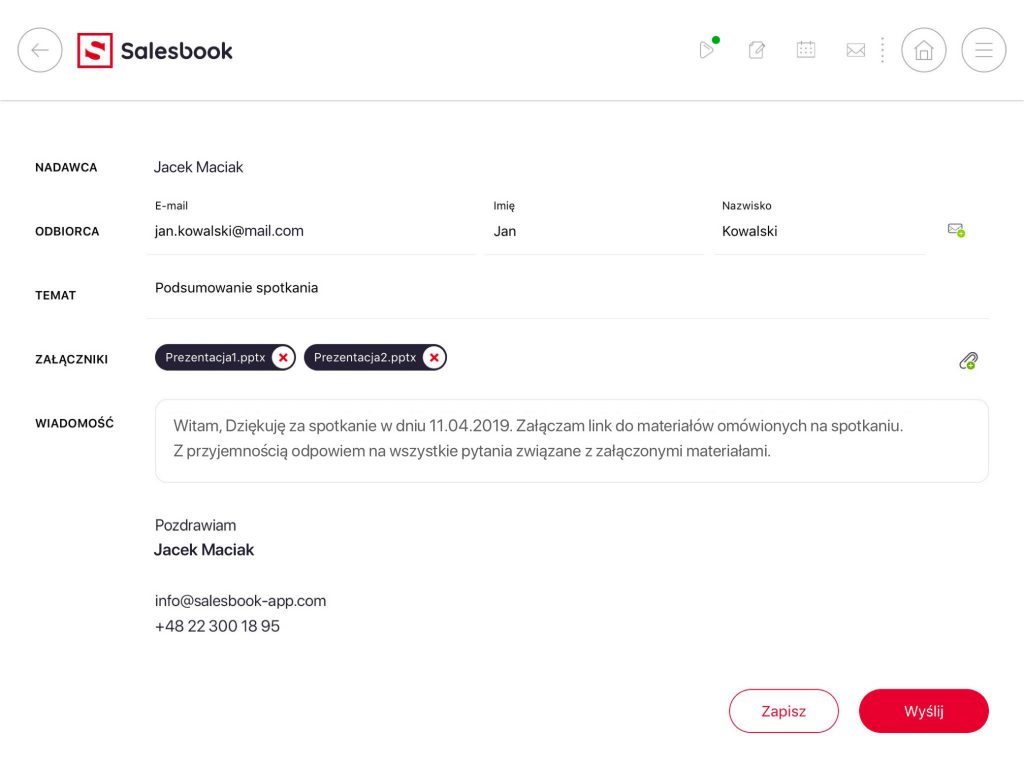
Presentation in the Salesbook application
Once your presentation is ready, both in terms of content and visual aspects, you can easily use it in your daily work with the Salesbook application. Prepared materials can be added to the Library, from where they can be displayed and sent to potential customers or displayed as presentation modules.
In this form, you can combine different types of files – PowerPoint presentations, PDF files or finally photos and videos. All these files will be combined into one product presentation in the Salesbook application.
Adding files to the Salesbook Library is very easy. After logging into the Salesbook panel, you create folders in which the files are grouped and then add the selected materials by dragging and dropping them into the file addition window.
Finally, simply press the button that publishes the new content database for the Salesbook application on your tablet. All your salespeople will receive information on their iPads about available library updates.




You can find more information about preparing sales presentations in our Knowledge Base:
Typography in business presentation. Can it generate revenue?
Visual thinking
Table of Contents
